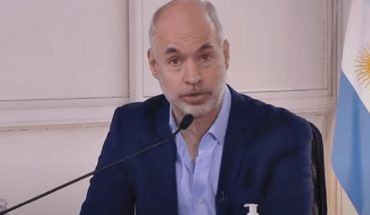Words are not innocent, words kill. This was repeated to me by the professor who introduced me to the world of bioethics, a world that I find fascinating, since it makes philosophy “practical”. The notions of “person”, “living being”, “human being” are the demonstration of this. Discussions about abortion and euthanasia have shown this very strongly: a human embryo can be ruled out if it is “not yet a person,” some claim; it can cause the death of a sick person if he is “no longer a person” or “if that life is not life,” others say.
To undertake a more serious philosophical analysis – which is very often missed in public debate – one must distinguish the levels of argumentation. There is a biological sense of life – and, even more, of human life – that is indisputable, and that refers to the properties of a certain organism that belongs to the species. Homo Sapiens Sapiens. In this sense, a human life is a life proper to that organism. Thus, there is no living human being who has no human life. From the moment of his conception until his death – with all the problems that may exist to determine the precise moment of that death, but here much more would have to be argued – the human being has human life. At the biological level, there is no doubt. Thus, taking the life of that human being (with abortion, for example) corresponds to ending a human life. And this is true at any time and at any stage of that human being’s life: when he is an embryo, fetus, child, adolescent, adult, or elderly. Ending the life of a human adult is the same as ending the life of a fetus: you are taking the life of a human being.
If all this seems so simple, why, then, are all these debates taking place, with reference to abortion and euthanasia, as we are seeing these days, when the free abortion project has just been rejected and shelved?
Because there is another sense of the concept of “human life”, more valuative. Human life is such when it has a certain dignity, a certain degree of development, when it is recognized as such, when it has certain properties, etc. A 2016 speech by presidential candidate Gabriel Boric in the Chamber of Deputies shows very well this double meaning of the concept of “human life”. He affirmed: “Unlike the right, in this project we declare ourselves radical defenders of life, but of a dignified life in which all our rights are guaranteed, whether we are men or women, without subordinations to the market.” At that same time, he declared himself in favor of the abortion project on three grounds, just as today he declares himself in favor of the free abortion project – although he forgot to vote to approve it on November 30 (thank God he does not have a good memory, both with the figures and with reference to a project that would be central to his government program).
It is therefore worth asking: what concept of life did Mr. Boric refer to, when he declared himself a radical defender of human life and, at the same time, supported abortion? Surely, not of biological life, because it would be a contradiction. He was referring rather to the second concept, that is, the evaluative: “whether we are men or women”, your life is human if it meets some characteristics. That’s where the interpretative possibilities begin – which is not the case if we defend a “biological” concept of human life. That is: a life is human if it possesses a certain degree of neuronal development, a life is human if it is recognized as human by the mother, a life is human if desired, a life is human if it is worth living, a life is human if it manifests some properties or characteristics, etc.
It is thus understood why, from this second concept of “human life”, abortion can be justified: the member of the species Homo Sapiens Sapiens it does not always have a human life, those who support abortion would argue. That is why you can take that life without being discriminators or without “killing” someone, because, in effect, that member of the species Homo Sapiens Sapiens it is not “a someone”. For this same reason, the deputy Maite Orsini, promoter of the free abortion project, asked not to call the fetus “guagua” or child, because it would not have our same human life, it would not be “one of us”.
For this reason, Deputy Boric suggested taking “a small step in the direction of equality”, without falling into contradiction, from his point of view. In fact, there is no contradiction there: the conclusion is consistent with the premises. If that member of the species Homo Sapiens Sapiens he is not “an equal” like us – namely, adults with “human life” – would not be discriminating against anyone. We would not be acting to the detriment of anyone’s dignity, because that embryo would not be a “someone.”
The point is, then, whether we are willing to accept the premises of that discourse, that is, whether we are willing to divide the human family into “members of the species.” Homo Sapiens Sapiens with human life” and “members of the species Homo Sapiens Sapiens without human life.” Where for human life we also understand dignity. That is, if we want to make our country the “house of all” – this is the motto of the constituent assembly – or the “house of all but some”. The point, in short, is whether the concept of dignity – so fashionable in Chile – refers only to some of the members of the human family, which we want to consider as more “equal” than “other equals”, or refers indiscriminately to all members. As simple as that.1
A final consideration, with reference to the insubordination to the market by abortion advocates, or the rejection of submission to the “neoliberal system, which has commodified women, under the premise of maximizing profits,” as Boric always stated in 2016. An Italian philosopher friend told me: “don’t fight publicly about issues like abortion or euthanasia, because when these projects are approved, they are not approved for philosophical reasons, but for market reasons.” That is: of “interests”. I was right.
In fact, the only way to defend the dignity of human life is to declare it as an “extra-market good”, that is, as something that does not fall under the same logics of the market. Eye: of all human life, not only of women (considering, in addition, that a good part of the human embryos or fetuses are women …). In this sense, the life of a member of the human family cannot be touched, ever. We return to the previous point, that is, whether those members are considered as “equal” or as “less equal”. And if we are all the same, none of us can be commodified. Nor to fetuses or human embryos.
The content expressed in this opinion column is the sole responsibility of its author, and does not necessarily reflect the editorial line or position of El Mostrador.





